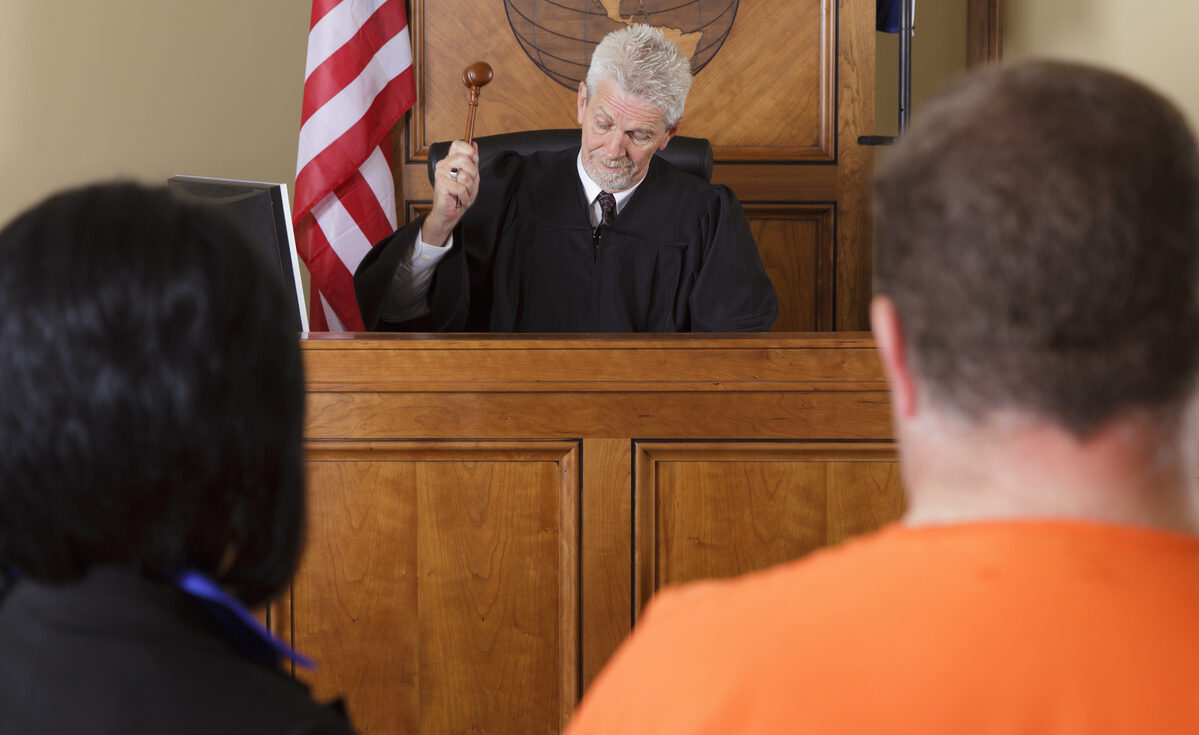Free speech is a right guaranteed to all citizens based on the 1st Amendment to the Constitution. Over the years, tension has developed between individuals seeking to exercise their free speech rights and governments attempting to enforce laws and maintain peace. Oftentimes, people exercising their free speech rights find themselves arrested and subject to criminal charges. In such cases, the First Amendment may provide a defense to such charges. The United States Supreme Court is currently wrestling with these issues in Bartlett v. Nieves.
Bartlett arises out an interaction between Russell Bartlett and a number of law enforcement officers, including Luis Nieves. Bartlett was attending an event called Arctic Man, an extreme ski event held annually in Alaska. Trooper Nieves approached Mr. Bartlett and asked to speak with him. Mr. Bartlett told Trooper Nieves, “I don’t want to talk to you,” and the officer walked away. Later that day, Bartlett attempted to stop Trooper Nieves and another trooper, Bryce Weight, from speaking with another event attendee who happened to be a minor child. During this interaction, Trooper Weight pushed Mr. Bartlett, after which the officers arrested him.
When Mr. Bartlett asked why he was under arrest, Trooper Nieves responded that he was under arrest for harassing Trooper Weight. Trooper Nieves also told him, “Bet you wish you would have talked to me now.” After a short jail stay, Mr. Bartlett was released and charged with disorderly conduct and resisting arrest. Both charges were ultimately dismissed.
Following the dismissal of the criminal charges, Mr. Bartlett filed a lawsuit alleging, among other claims, that his arrest was motivated by two things. First, Mr. Bartlett alleged that the officers sought to retaliate against him for failing to speak with Trooper Nieves during their initial interaction regarding Bartlett’s beer keg. Second, Mr. Bartlett alleged that the officers were also upset because he challenged their authority during their conversation with the child. Because the arrest was motivated by these episodes of exercising free speech, Mr. Bartlett contended that the arrest violated his First Amendment rights. In support of his claim, Mr. Bartlett relied heavily upon Houston v. Hill. In that case, the United States Supreme Court ruled that the First Amendment protects a significant amount of verbal criticism directed at police officers, finding that the freedom to verbally challenge police action without the risk of arrest is one of the principal characteristics by which a free nation is distinguished from a police state.
The trial court disagreed with Mr. Bartlett, and initially, the US District Court for the District of Alaska dismissed the claim. The District Court ruled the arrest did not violate Bartlett’s free speech rights because the troopers had probable cause to arrest Bartlett for the crime of harassment. Under Alaska law, the crime of harassment occurs when a person “with intent to harass or annoy another person, that person . . . insults, taunts, or challenges another person in a manner likely to provoke an immediate violent response.” The court reasoned that because probable cause to arrest Bartlett for a crime existed, Mr. Bartlett was not arrested for his verbal challenge of the troopers’ authority and, therefore, Bartlett’s First Amendment rights were not violated.
Bartlett appealed the dismissal of his First Amendment claim to the US Court of Appeals for the 9th Circuit, which reversed the District Court’s dismissal of the lawsuit. Citing to Ford v. City of Yakima, the Appellate Court noted that a person has a right to be free from retaliatory arrest, even if probable cause exists for the arrest. The 9th Circuit went on to note that Bartlett had a potential claim for retaliatory arrest in violation of the First Amendment, based primarily on Trooper Nieves’ alleged statement, “bet you wish you had talked to me now,” which suggests that Mr. Bartlett’s refusal to answer Trooper Nieves’ questions during their first interaction was the basis for the arrest.
The 9th Circuit’s decision has been appealed to the United States Supreme Court. Oral argument was held on the case on November 26, 2018, and a decision is expected in the near future.
This article was authored through the collaborative efforts of Eric R. Pangburn and other legal professionals at West & Dunn, a law firm dedicated to providing high-quality legal services to individuals and businesses, with a particular focus on assisting veterans of the United States Armed Forces.
